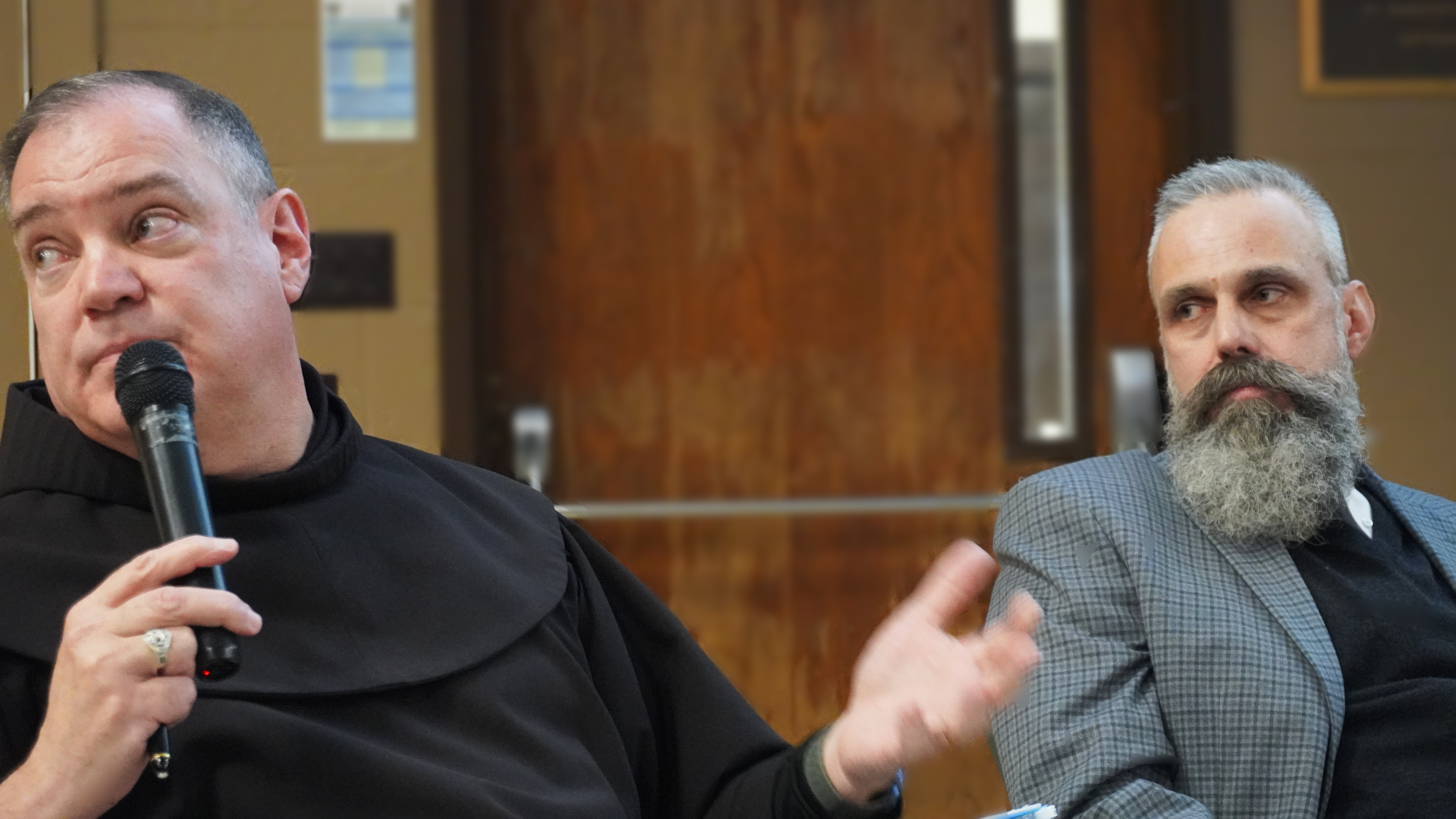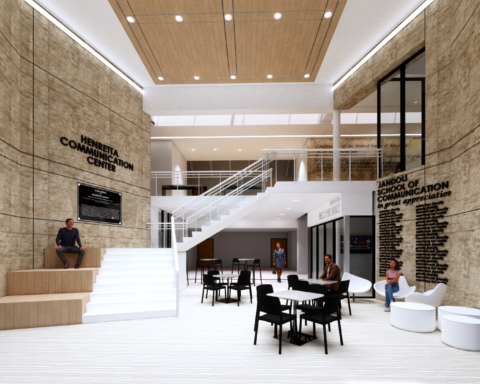A picture of the wall hangings in the second floor of the Reilly Center
David Scibilia/The Bona Venture
BY: DAVID SCIBILIA, NEWS EDITOR
St. Bonaventure University released its annual security and fire safety report in accordance with the Clery Act this Monday.
The Clery Act requires all colleges and universities that receive federal funding to disclose statistics about certain crimes reported on or near campus. This culminates in a yearly report sent to all students and faculty. This year, documented cases of rape and fondling increased, while burglaries and liquor law violations decreased.
In the report, rape is defined as:
“The penetration, no matter how slight, of the vagina or anus, with any body part or object, or oral penetration by a sex organ of another person, without the consent of the victim. This definition includes any gender of victim or perpetrator.”
From 2020 to 2022, cases of documented rape increased by five, for a total of 11 cases in the three-year span. In 2020 there was one reported case in on-campus student residential facilities. In 2021 there were five cases, and in 2022 there were six documented cases.
Katie O’Brien, the vice president for Student Affairs at Bonaventure, claimed that, while on the higher end, six documented cases were not out of the ordinary for Bonaventure.
“If you go back and you look at the other years, starting at 2016, we are [at] about four or five to six,” said O’Brien. “Not that one year [in reference to 2020] which might have been more of an anomaly because [of] what the year was. We really weren’t here on campus the whole entire time.”
From 2020 to 2022, documented cases of fondling also increased. There were a total of four documented cases over the three-year span. In 2020 there were zero documented cases in on-campus student residential facilities, one case in 2021 and three cases in 2022.
In the report, fondling is defined as:
“The touching of the private body parts of another person for the purpose of sexual gratification, without the consent of the victim, including instances where the victim is incapable of giving consent because of his/her age or because of his/her temporary or permanent mental incapacity.”
O’Brien believes that peer-to-peer education is one of the best ways to lower these rates going forward.
“We have found that peers listen more to peers than they might listen to [administrators],” said O’Brien. “Most of our efforts have been concentrated through our peer-to-peer Empower group, who go out and do the training.”
Empower is a student-based educational group whose members serve as ambassadors for sexual assault, dating and domestic violence, stalking prevention and victim-services initiatives.
Along with Empower, the Vector LMS Sexual Assault Prevention Ongoing: Healthy Relationships training course — which all students must complete before getting their room key each year — is one of the initiatives the university implemented in an attempt to lower these rates.
“Our starting point is prevention training,” said O’Brien. “[We want] students to understand what is our policy, what is the law, how to report and what might happen if you are found responsible for [a] violation under a gender-based discrimination policy.”
Documented cases of burglary, defined in the report as the unlawful entry of a structure to commit a felony or a theft, decreased by 77.78% when comparing 2020 to 2022. There were 13 documented cases in the three-year span. In 2020 there were two documented cases in on-campus residential facilities, in 2021 there were nine cases and in 2022 it fell to two documented cases.
“Most, if not all, of our reported burglaries are from unlocked residence hall bedrooms,” said Gary Segrue, the associate dean for campus safety. “Any reported property missing from a dorm room we count as a burglary.”
Liquor-law violations, was defined in the report as:
“The violation of state or local laws or ordinances prohibiting the manufacture, sale, purchase, transportation, possession or use of alcoholic beverages, not including driving under the influence and drunkenness,”
This kind of violation decreased by 47.22%, when comparing 2020 to 2022. This category was split into those met with arrests — which stayed constant at zero throughout the three-year period — and those met with disciplinary actions by the university. There were a total of 300 documented cases in the three-year span. In 2020 there were 146 violations met with disciplinary actions, in 2021 there were 77 and in 2022 there were also 77 documented cases.
“In the beginning of 2022, safety and security completed the goal to install digital surveillance cameras [on] every floor of the residence halls across campus,” said Segrue. “I believe the surveillance cameras inside the residence halls have a positive impact on crime. This may explain why both the burglary and liquor-law violations have decreased.”
O’Brien stressed that the safety of students has to be a priority for the university.
“We can do nothing else for our students unless we have a really solid foundation [of] safety,” said O’Brien. “It’s looking at things, like making sure that we’re adequately staffed, making sure that we have appropriate card access, [and] making sure that we have appropriate surveillance cameras.”
scibild22@bonaventure.edu








